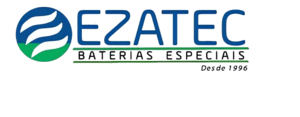(Abstract)
This study deals with a new type of inverter called a three-phase SCVD based boost
inverter. The introduced structure is a combination of an SCVD network and the three-phase
bridge to restrict the common-mode voltage. Therefore, the introduced inverter can produce
a high output voltage from the low input voltage. The DC-bus voltage of the introduced
solution stands at twice of the input voltage. Moreover, the variation in common-mode
voltage can o be restricted within one-sixth of DC-bus voltage. Modeling, circuit analysis,
operating principles, and a comparison between the introduced SCVD based boost inverter
with the other VSIs are performed. To confirm the performance improvements of the
introduced SCVD based boost inverter, a preliminary prototype of the introduced SCVD
based boost inverter is built in the laboratory and the simulation studies based on PLECS
environment and experimental studies are performed. Besides that, a modified SCVD based
boost inverter is also introduced to step up the DC-bus voltage to triple of input voltage
instead of twice of input voltage like that in the proposed SCVD based boost inverter.
Furthermore, a common-mode voltage of the modified SCVD based boost inverter is
x
canceled through switching the four extra active-switches based on the Boolean logic
function. As a result, common-mode voltage is maintained as constant at the value of 0 V
during all time. Moreover, the voltage stress across additional semiconductor devices is
standing at one-third of DC-bus voltage. The simulation studies based on PLECS
environment prove the effectiveness of the modified SCVD based boost inverter. Finally, to
validate the performance, operating principle, and feasibility of the modified SCVD based
boost inverter, the experimental studies based on the laboratory prototype with a DSP
F280049C are carried out.
Doctoral Dissertation
A Three-Phase SCVD Based Boost Inverter with
Low Common Mode Voltage for Transformerless
Photovoltaic Grid-Connected System
Department of Electrical Engineering
Graduate School, Chonnam National University
BY Tran Tan Tai
(Abstract)
This study deals with a new type of inverter called a three-phase SCVD based boost
inverter. The introduced structure is a combination of an SCVD network and the three-phase
bridge to restrict the common-mode voltage. Therefore, the introduced inverter can produce
a high output voltage from the low input voltage. The DC-bus voltage of the introduced
solution stands at twice of the input voltage. Moreover, the variation in common-mode
voltage can o be restricted within one-sixth of DC-bus voltage. Modeling, circuit analysis,
operating principles, and a comparison between the introduced SCVD based boost inverter
with the other VSIs are performed. To confirm the performance improvements of the
introduced SCVD based boost inverter, a preliminary prototype of the introduced SCVD
based boost inverter is built in the laboratory and the simulation studies based on PLECS
environment and experimental studies are performed. Besides that, a modified SCVD based
boost inverter is also introduced to step up the DC-bus voltage to triple of input voltage
instead of twice of input voltage like that in the proposed SCVD based boost inverter.
Furthermore, a common-mode voltage of the modified SCVD based boost inverter is
canceled through switching the four extra active-switches based on the Boolean logic
function. As a result, common-mode voltage is maintained as constant at the value of 0 V
during all time. Moreover, the voltage stress across additional semiconductor devices is
standing at one-third of DC-bus voltage. The simulation studies based on PLECS
environment prove the effectiveness of the modified SCVD based boost inverter. Finally, to
validate the performance, operating principle, and feasibility of the modified SCVD based
boost inverter, the experimental studies based on the laboratory prototype with a DSP
F280049C are carried out.
VIEW FULL DOCTORAL DISSERTATION:
LINK ALTERNATIVO DOCTORAL DISSERTATION:

.gif)









Nenhum comentário:
Postar um comentário